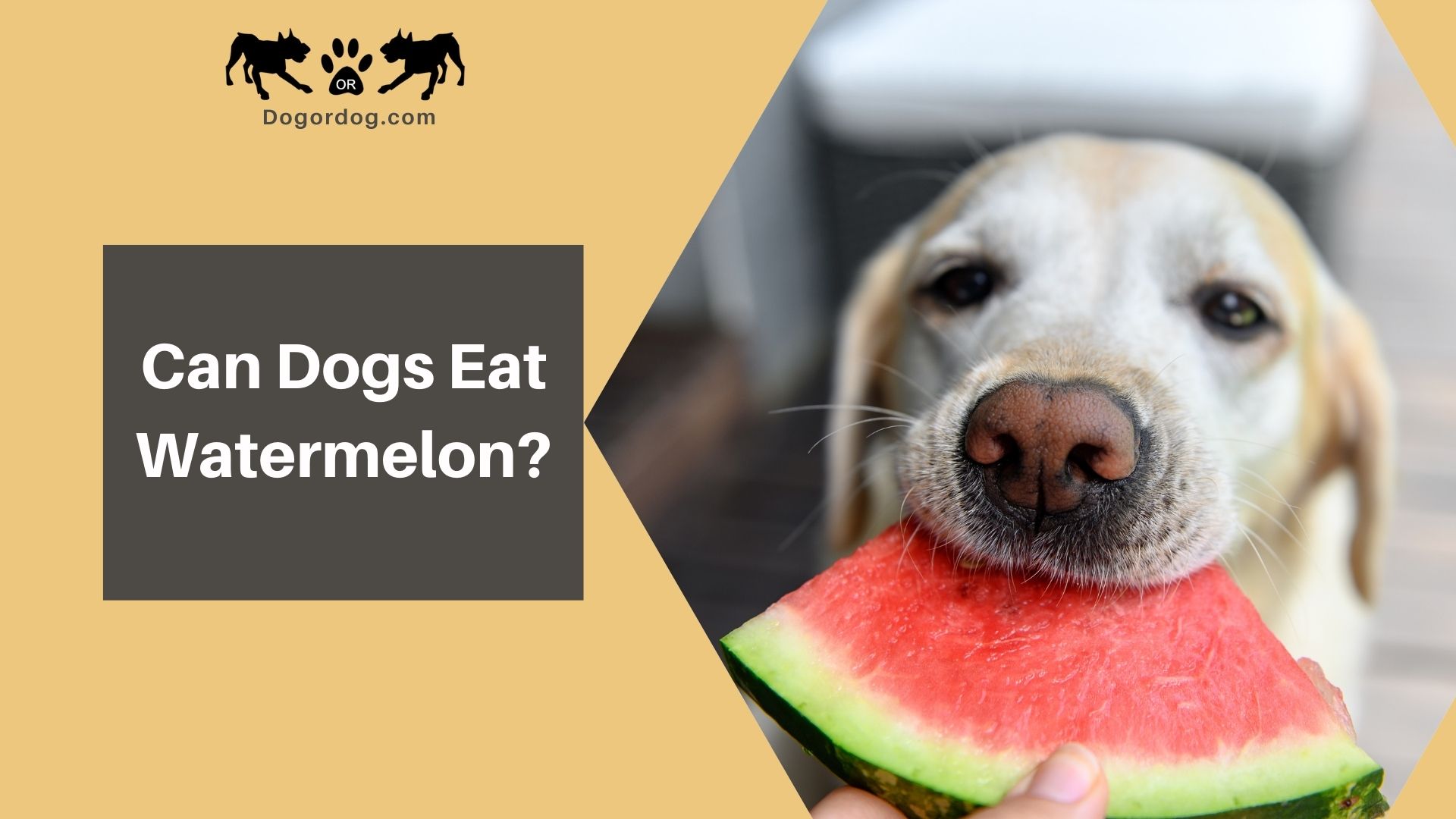
Wouldn’t it be nice to share our plates with our canine friends all the time? We want them to be happy, and one of the ways we can do this is by giving them delicious and healthy food. Unfortunately, we need to be careful when giving our dogs human food, as some can be toxic and unsafe for dogs to eat.
This brings us to the question, can dogs eat watermelon? Watermelon is a tasty and refreshing fruit many people love to eat, especially during the hot summer months. But can dogs eat watermelon?
In this article, we’ll answer whether watermelons are safe for dogs to eat or not.
Can Dogs Eat Watermelon?
The answer is yes; dogs can eat watermelon. It’s entirely safe for dogs to eat the fruit, plus it’s healthy, nutritious, and tasty, and many dogs would love it as a treat.
Though the fruit is safe for dogs to eat, there are a few things you need to keep in mind. Not all parts of watermelon are safe to eat. When feeding the fruit to your pups, always make sure to remove the seeds and the rind.
If your dog is suffering from a medical condition, it’s better to consult with your vet if it’s okay to feed the fruit to your pet. Fruits should also only be given as a treat and not a complete meal replacement since dogs need the nutrients found in commercial dog food to meet their daily nutritional needs.
Consider: Darwin Raw Dog Food
When Is Watermelon Good for Dogs?
Watermelon is 92% water, so it’s an excellent fruit to feed your dog during summer. It can help cool down your dog from the scorching heat, keeping it hydrated. If you want to give a treat to your pet when it’s hot outside, watermelon is an excellent choice.
The fruit is also packed with Vitamins A, B6, and C, making it a nutritious snack. It also has lycopene, which is an antioxidant that helps prevent cancer. It is low in calories, sodium, cholesterol-free, fat-free, and high in fiber, making it great for digestion.
And although watermelon does have high sugar content, its fiber content insulates the sugar and prevents it from being released quickly into the bloodstream.
When Is Watermelon Bad for Dogs?
Watermelon can be harmful to dogs if they eat the seed or rind. The seeds are hard and can cause intestinal blockage, especially in smaller dogs. The same thing goes for the rind; it’s hard and difficult to chew, so dogs might swallow them directly.
Signs for intestinal blockage include vomiting, diarrhea, constipation, abdominal pain, and lethargy. Symptoms usually appear within 24 hours after your dog ingests watermelon seeds or rind.
How To Feed Watermelon to Dogs
When giving watermelon to your dog, make sure to remove the seeds and rind. You should also cut the fruit’s meat into small, chewable cubes, so it’s easier for them to eat. Placing them inside the freezer can make it a great cold snack, certainly healthier than ice cream.
However, if you give your dog frozen watermelon, make sure its teeth are strong enough to chew the fruit.
You can also make a smoothie by adding watermelon and other fruits to the mix if you want a healthier snack. You can also include watermelon in a fruit salad for an even healthier treat.
And since dogs usually get their complete and balanced diet from commercial dog food, it must be noted that giving watermelon must only be treated as a snack. It should never be part of its daily diet and only be given as an occasional treat.
Avoid feeding processed watermelon treats since they can be packed with sugar and other chemicals. Too much sugar is bad for obese dogs or those that have diabetes. When feeding watermelon, make sure it’s fresh and not processed.
Conclusion
Watermelon is entirely safe for dogs to eat, and make sure to remove the seeds and rind before serving them to your pet canine. The fruit is a great snack option on a hot day since it’s made of 92% water. It’s refreshing and can keep your dog hydrated when you’re on the beach or out in a park during a summer day.
Though watermelon is a healthy treat for your dog, it’s always safe to ask your veterinarian if it’s okay to introduce the fruit to your pet canine.
Related:



